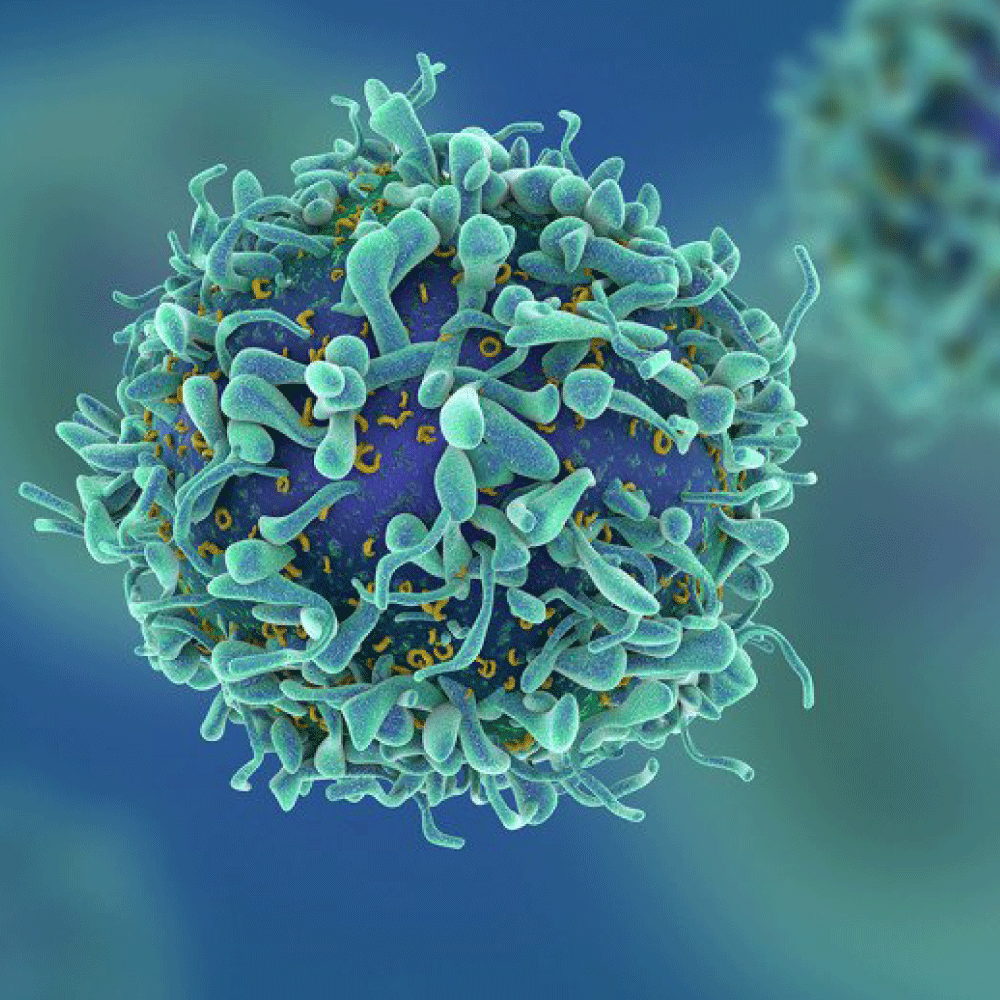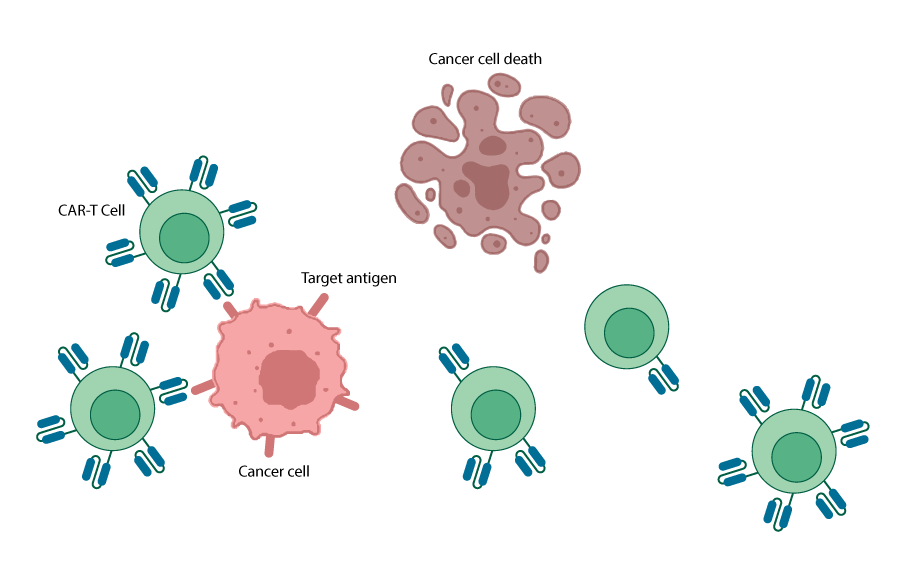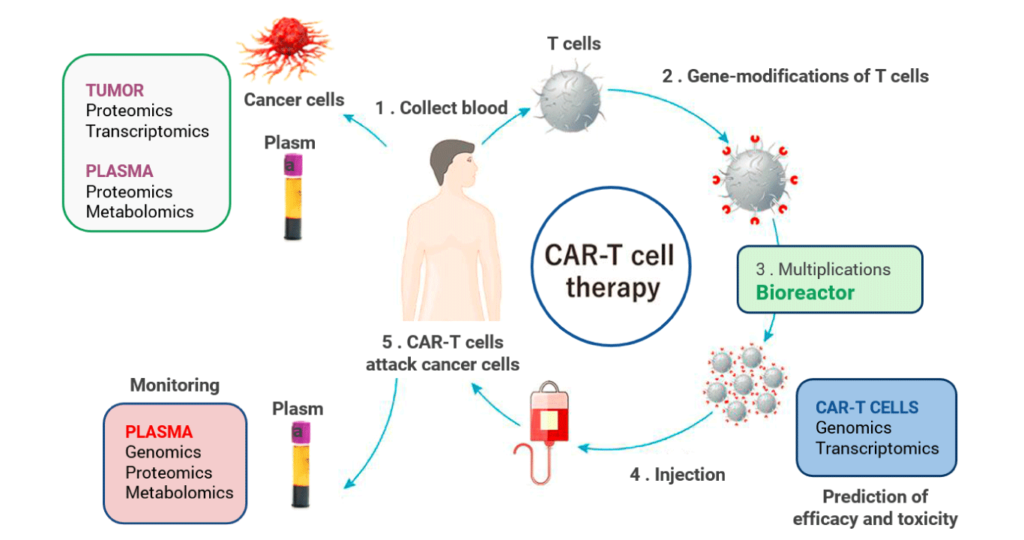Multi Omics
Integrating a Multi-Omics approach
Integrating a Multi-Omics approach will enhance our understanding of the CAR-T system, allowing for more accurate predictions of therapy efficacy and potential toxic side effects prior to treatment. Additionally, this approach enables ongoing patient monitoring once the treatment has commenced.

The Multi-Omics approach will be a good option to increase the benefits of the CAR-T therapy and the OOC technology. Particularly, different layers of information can be obtained through genomics, transcriptomics, proteomics and/or metabolomics analyses. The multi-omics approach can be applied to different samples and steps of the process:
Analyzing tumor biopsies and plasma samples before T-cell collection and multiplication to fully characterize patients’ biomarkers, specific cancer antigens, immune inhibitors or toxicity gene expression to better predict efficacy and toxicity of the future CAR-T treatment.
Analyzing CAR-T cells during multiplication in the bioreactor to obtain the omics profile indicating not only the effectiveness or the possible toxicity of the treatment, but also the survival expectancy of CAR-T cells in the patient.
Analyzing plasma samples during CAR-T treatment to monitor patients’ health and response to treatment, not only with metabolic or proteome profiling, but also analyzing circulating DNA from CAR-T cells or from tumor cells.
7Talos has the potential to revolutionize the field of CAR-T cell therapy by providing a platform to predict the efficacy of CAR-T cell therapy, identify resistance mechanisms, and optimize CAR-T cell therapy. In addition and in partnership, the Center for Omic Sciences at Eurecat will provide a multi-omics approach applying bulk and single-cell studies for the development of next-generation CAR T-cell therapies.


